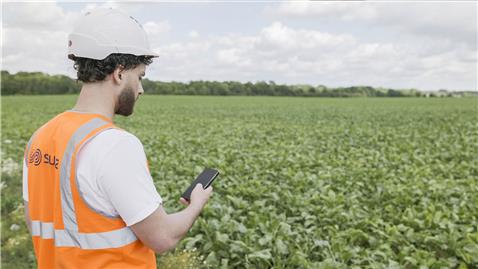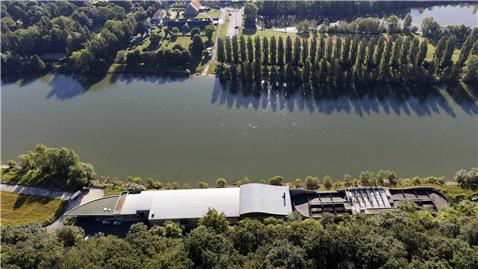On the Climate theme, we continued to take action to produce more renewable energy and increase its proportion in our energy mix, thereby contributing to the low-carbon transition of local communities.
One major step in this direction was the signing of our first renewable power purchase agreements1, covering the production of solar power stations built on disused landfill sites. In the UK, 100% of the energy consumed in 2024 was of renewable origin. We also increased the production of renewable energy through our Water activities in Europe, with the completion of major projects such as the Biofactory® at Villiers-Saint-Frédéric and the extension of the biomethane production unit at Sormiou in Marseille. Our efforts to decarbonise our activities enabled us to reduce our Scope 1 and 2 CO2 emissions by 6.2% compared with 2023, thanks in particular to the work carried out on waste storage sites in Morocco, South Africa and France. We continued our work to support our customers in their own decarbonisation, for example by launching new solid recovered fuel (SRF) projects with industrial companies; or by signing a memorandum of understanding with the CMA-CGM Group to produce energy from waste to fuel its ship fleet. Finally, in terms of adaptation, we launched several major desalination projects, particularly in Asia and the Middle East, which will help to ensure the resilience of these regions by guaranteeing long-term access to water.
Under the Nature heading, in 2024 we treated 3 billion m3 of wastewater, helping to preserve the quality of water resources, and produced nearly 2.5 million tonnes of secondary raw materials – thus saving just as much natural resources.
Several major projects were launched in this perspective, including one in the Philippines, where we will help improve water quality in Manila Bay by working on a centralised wastewater treatment system. In France, we have doubled the capacity of our plastic film recycling site in Landemont. We strengthened our partnerships to promote the circular economy, such as the initiative launched with Alupro in the UK to increase aerosol recycling. Our long-standing collaboration with Renault Group was strengthened to accelerate the circular economy in the automotive sector in Europe, a major challenge for this industry.
In the Social field, our employees, partners and customers are the foundation of our sustainable development strategy.
For our employees, we organised the Group's first People Week, dedicated to professional development and community involvement. To contribute to the sustainable development of the regions in which we operate, we continued to pursue our active inclusion policy: almost 3,400 people benefited from our employment outreach programmes in 2024. We continue to strengthen dialogue with our key partners, as demonstrated by our first Suppliers' Day organised at the beginning of 2025 with our strategic suppliers. This event served as a reminder of the major role played by our suppliers, and more generally of the importance of cooperation, in achieving our sustainable development goals. Finally, we remain resolutely attentive to our customers, our primary partners, whose expectations have been profoundly transformed by the ecological transition. In 2024, this focus resulted in an increase in the Net Promoter Score indicator, which measures customer satisfaction.
Across our three pillars, 2024 was therefore a year in which the actions initiated in 2023 were consolidated upon, then accelerated. We continue to move forward with confidence and determination to achieve our objectives for 2027, supported in our actions by the lessons learned from our first sustainability statement.





